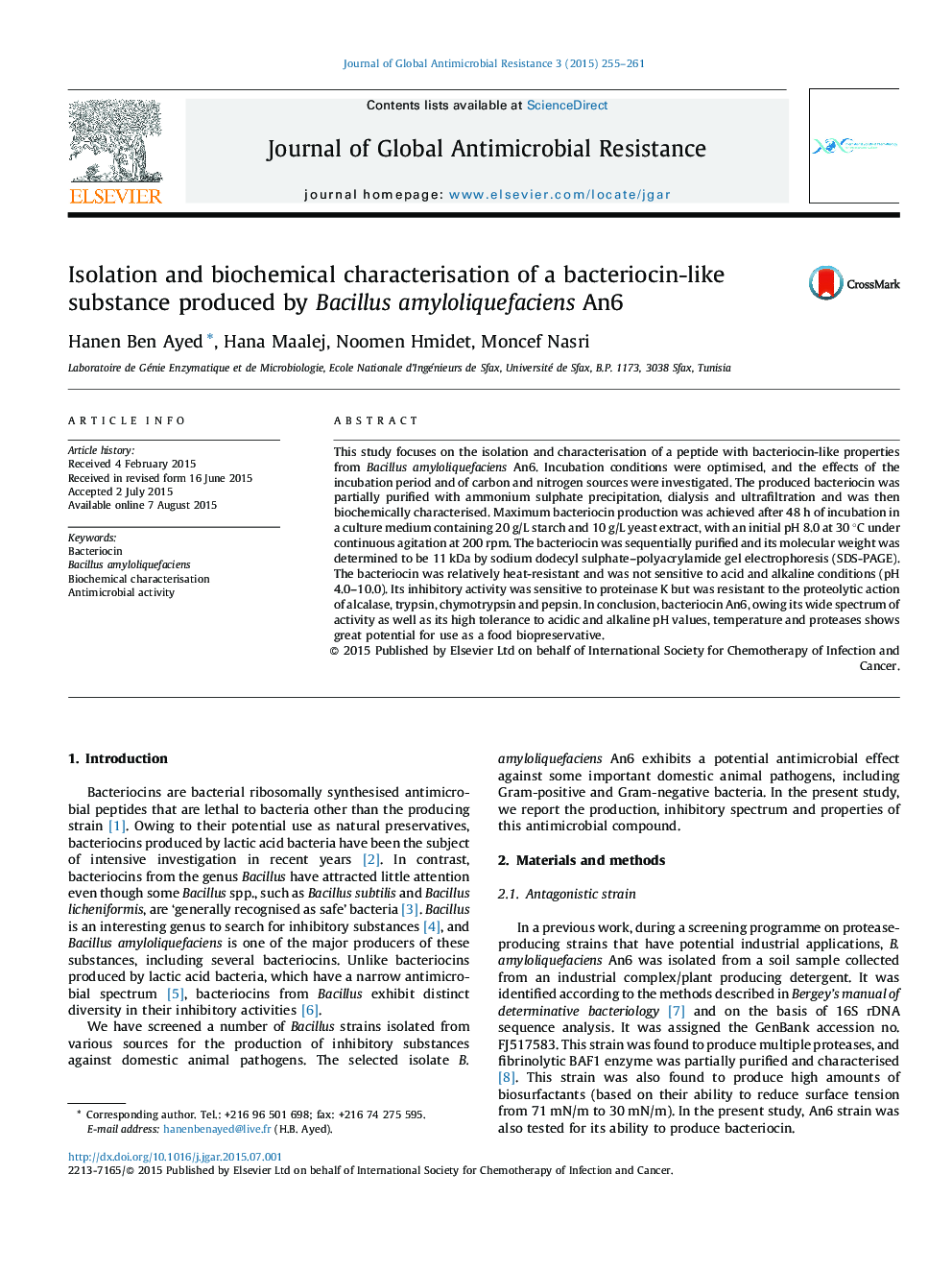| Article ID | Journal | Published Year | Pages | File Type |
|---|---|---|---|---|
| 3405680 | Journal of Global Antimicrobial Resistance | 2015 | 7 Pages |
•Bacillus amyloliquefaciens An6 isolated from Tunisian soil produced a novel bacteriocin.•The bacteriocin has potential properties that can be used as a food preservative.•Bacteriocin was heat- and pH-stable with a broad spectrum of inhibition.•Partial purification and molecular mass determination were performed.
This study focuses on the isolation and characterisation of a peptide with bacteriocin-like properties from Bacillus amyloliquefaciens An6. Incubation conditions were optimised, and the effects of the incubation period and of carbon and nitrogen sources were investigated. The produced bacteriocin was partially purified with ammonium sulphate precipitation, dialysis and ultrafiltration and was then biochemically characterised. Maximum bacteriocin production was achieved after 48 h of incubation in a culture medium containing 20 g/L starch and 10 g/L yeast extract, with an initial pH 8.0 at 30 °C under continuous agitation at 200 rpm. The bacteriocin was sequentially purified and its molecular weight was determined to be 11 kDa by sodium dodecyl sulphate–polyacrylamide gel electrophoresis (SDS-PAGE). The bacteriocin was relatively heat-resistant and was not sensitive to acid and alkaline conditions (pH 4.0–10.0). Its inhibitory activity was sensitive to proteinase K but was resistant to the proteolytic action of alcalase, trypsin, chymotrypsin and pepsin. In conclusion, bacteriocin An6, owing its wide spectrum of activity as well as its high tolerance to acidic and alkaline pH values, temperature and proteases shows great potential for use as a food biopreservative.
